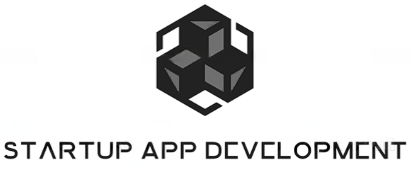Finding the right app developer can be a game-changer for your startup, especially in a tech hub like Washington DC. With an abundance of choices, it’s crucial to make informed decisions to ensure you partner with someone who aligns with your vision. Here are some friendly tips to guide you on this journey.
1. Identify Your Needs and Goals
Begin by articulating your app’s purpose. Clearly define the problem your app aims to solve and the audience it will serve. This understanding will guide you in choosing a developer who can meet your specific needs. Craft a detailed list of features and functionalities you envision for your product, as being specific about your requirements will not only help potential developers understand your vision but also leave you better positioned during discussions and negotiations.
Remember, the clearer your project scope, the easier it will be to find the perfect match in terms of technology and expertise. Your list of requirements should include both must-have and nice-to-have features. It might even help to create a preliminary roadmap or a simple wireframe of your app envisioning its layout and key functionalities. The more effort you invest here, the smoother the succeeding steps will be.
2. Research Local Talent
Washington DC is home to a vibrant tech scene. Explore local directories, online platforms, and tech meetups to find experienced app developers familiar with the city’s dynamic startup environment. Meetups, hackathons, and local tech conferences are excellent opportunities to network and discover talent. Additionally, consider looking into Washington DC-based online communities and forums where tech enthusiasts often gather to discuss trends, share resources, and showcase their skills.
Another approach to finding local talent is reaching out to local universities. By partnering with institutes known for their tech programs, you might uncover budding developers with cutting-edge skills eager to work on meaningful projects. Leveraging the broader network can provide you with candidates who not only have the technical skills but also understand the vibrant culture of Washington DC’s tech community.
3. Evaluate Portfolios and Case Studies
Reviewing a developer’s past work can provide insight into their expertise and style. Look for a portfolio that includes projects similar to your own, focusing on user experience, design, and innovation. Analyze case studies that detail the problem, approach, and solution to understand how they tackle challenges. Pay attention to how the developer integrates user feedback into their projects, as this is often a reflection of their ability to adapt and iterate on their designs.
When evaluating portfolios, take note of technical details such as the technology stack used and the complexity of the projects. Do they align with what you’re looking for? If a portfolio contains apps that have a substantial number of users and high ratings on app stores, it’s usually a good sign of reliability and quality. Don’t hesitate to inquire about any specific project to understand the developer’s role within team settings and the contributions they made.
4. Check References and Testimonials
Reaching out to past clients can offer invaluable feedback on a developer’s work ethic, reliability, and communication skills. Genuine testimonials can make a significant difference in your decision. When you contact references, ask pointed questions about their experience, the challenges faced, and whether the developer delivered as promised on time and within budget.
Testimonials can be telling of a developer’s commitment to client satisfaction. They should reflect diverse experiences and provide you with a comprehensive understanding of what it’s like to work with the developer. Try to get a sense of how they handle post-launch support and if they maintain a good relationship with clients beyond project completion.
5. Consider Communication and Collaboration
Effective communication is key to any successful partnership. Choose a developer who is open, transparent, and receptive to feedback to ensure a smooth collaboration process. During your initial meetings, observe their willingness to listen and understand your ideas and vision. Clear, consistent communication reduces the chances of misunderstanding and the associated risks there’s in the development process.
It’s also essential to align on tools and methods used for collaboration, especially if you operate remotely or have teams located in different time zones. Consider frameworks like Agile or Scrum for efficient project management and ensure the developer is comfortable using them for tracking and adapting the workflow as necessary. Good communication practices form the backbone of successful partnerships and result in more efficient progress and better work products.
6. Assess Technical Skills and Tools
Ensure the developer is proficient in the necessary technologies and platforms for your app. Familiarity with the latest tools and trends is a bonus that can elevate your project’s quality. Review whether their expertise matches the platform (iOS, Android, Web) you are aiming for, and check if they have experience with current industry-standard technologies relevant to your project.
Stay open to developers who recommend tools or technologies you might not have considered. Their expertise could introduce more effective solutions for your app’s development. Moreover, they should demonstrate a continuous commitment to staying updated with emerging trends in app development, such as artificial intelligence, machine learning, and clean code principles, which could significantly enrich your project outcomes.
7. Negotiate Pricing and Timeline
A clear understanding of costs and timelines can prevent future misunderstandings. Establish upfront agreement on rates and deadlines to align expectations and avoid unexpected surprises. Be transparent about your budget constraints and discuss various payment structures, whether it be fixed price, hourly rates, or milestone-based payments.
An experienced developer should provide a detailed estimate and timeline once they understand your requirements and scope. Flexibility is vital since startups often deal with changes and pivots, so the developer’s willingness to adapt the project plan to evolving needs should be clarified early on. Having these discussions upfront fosters trust and sets a foundation for a smoother working relationship, ensuring that both parties are committed to delivering and receiving value in alignment with the agreed terms.


